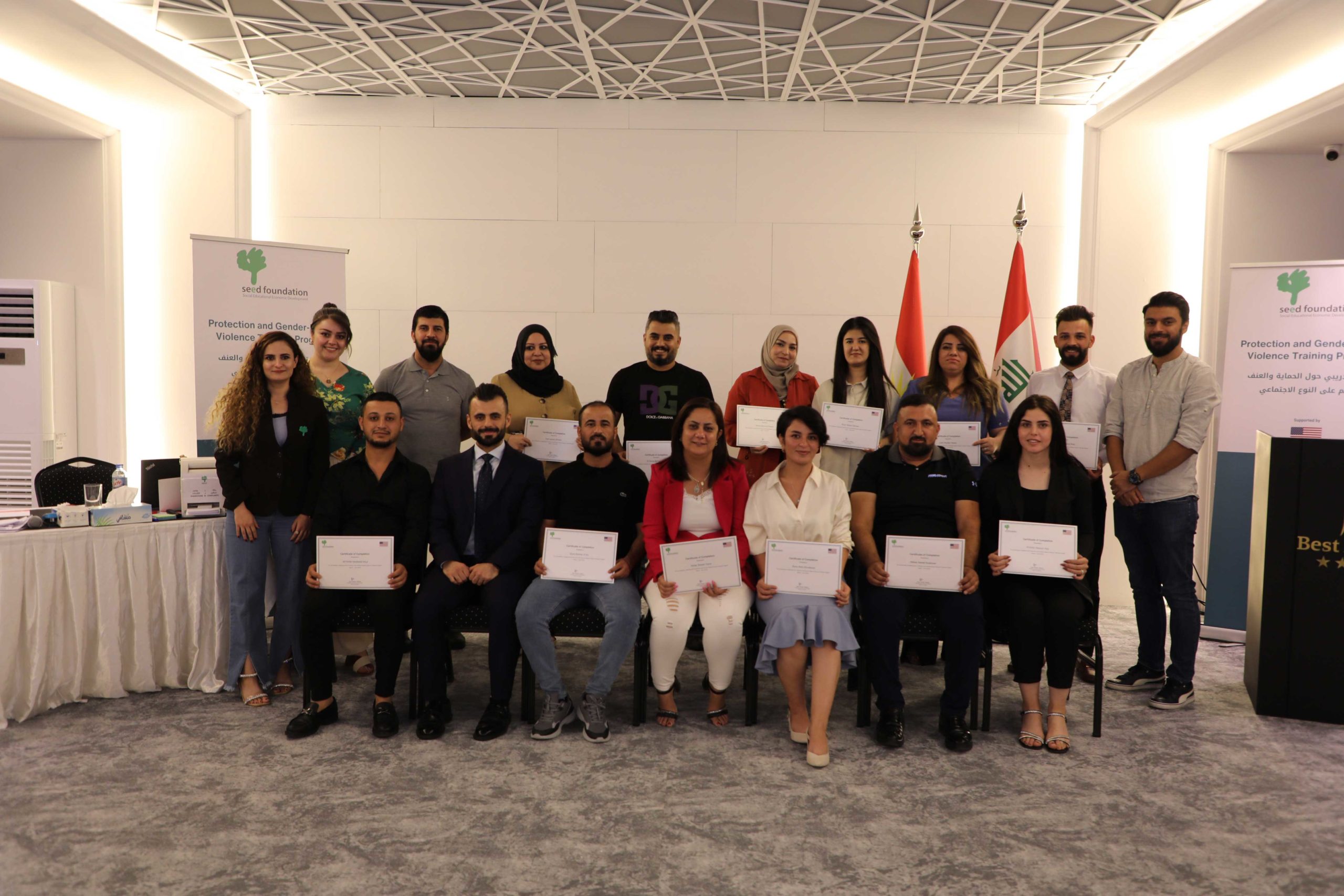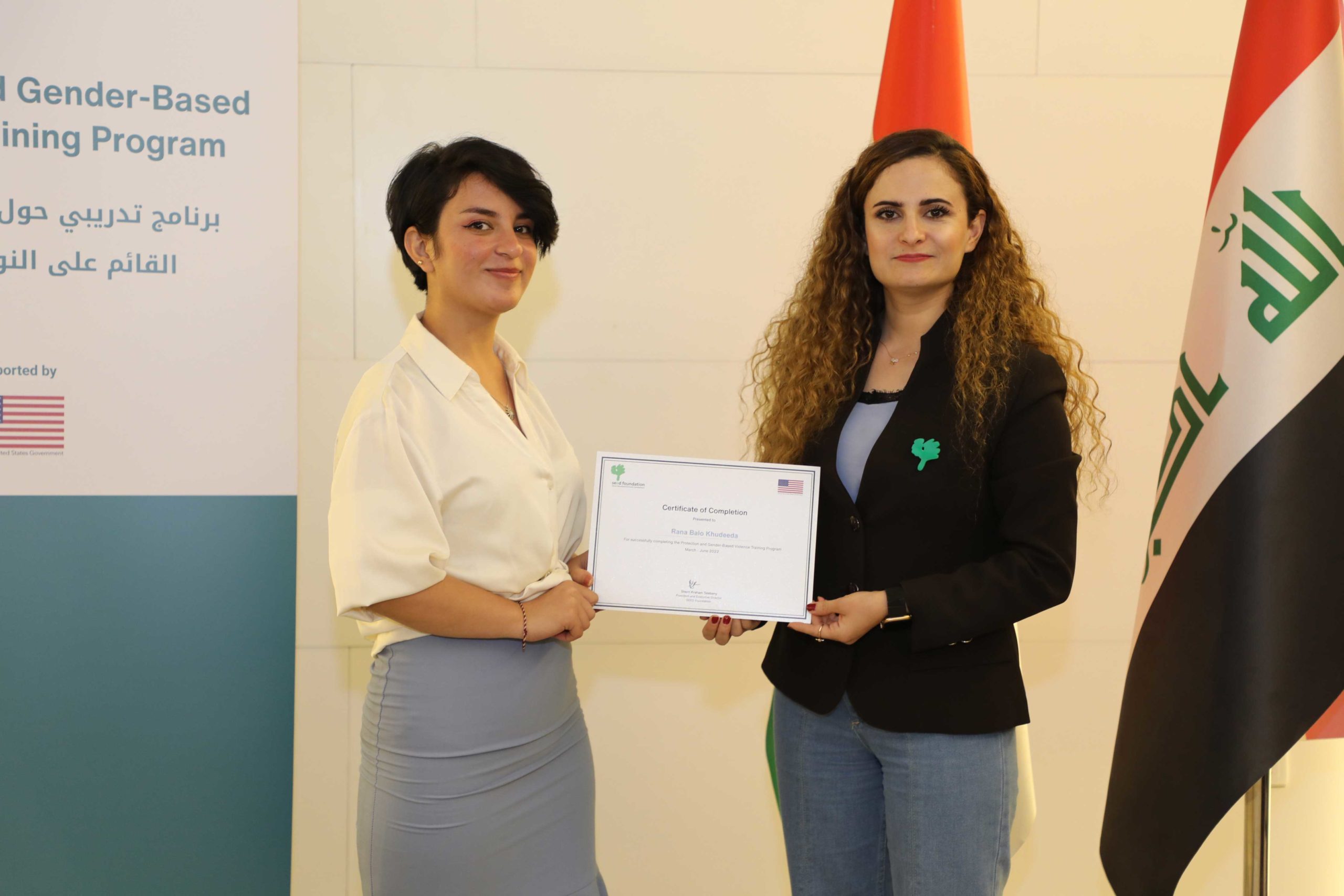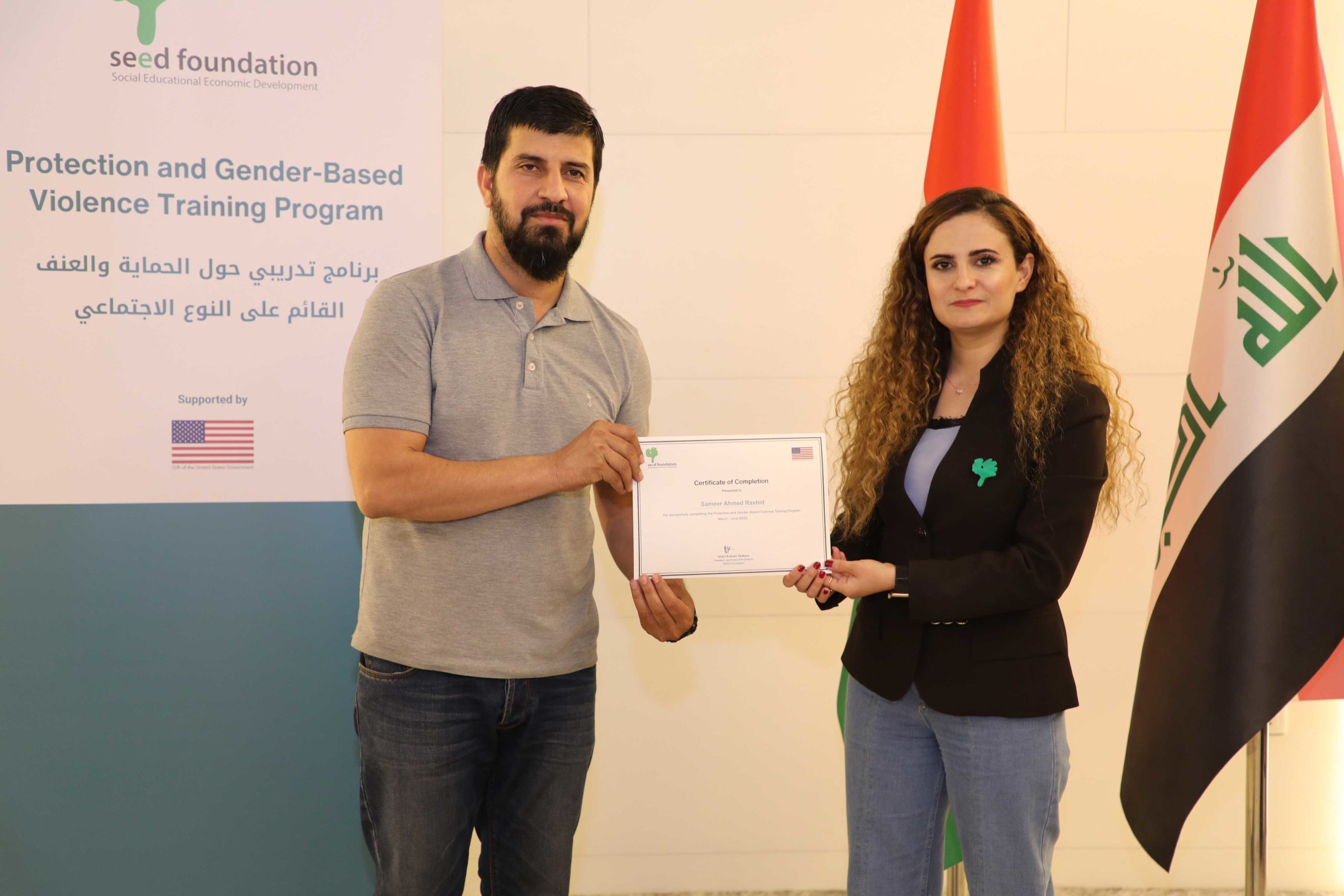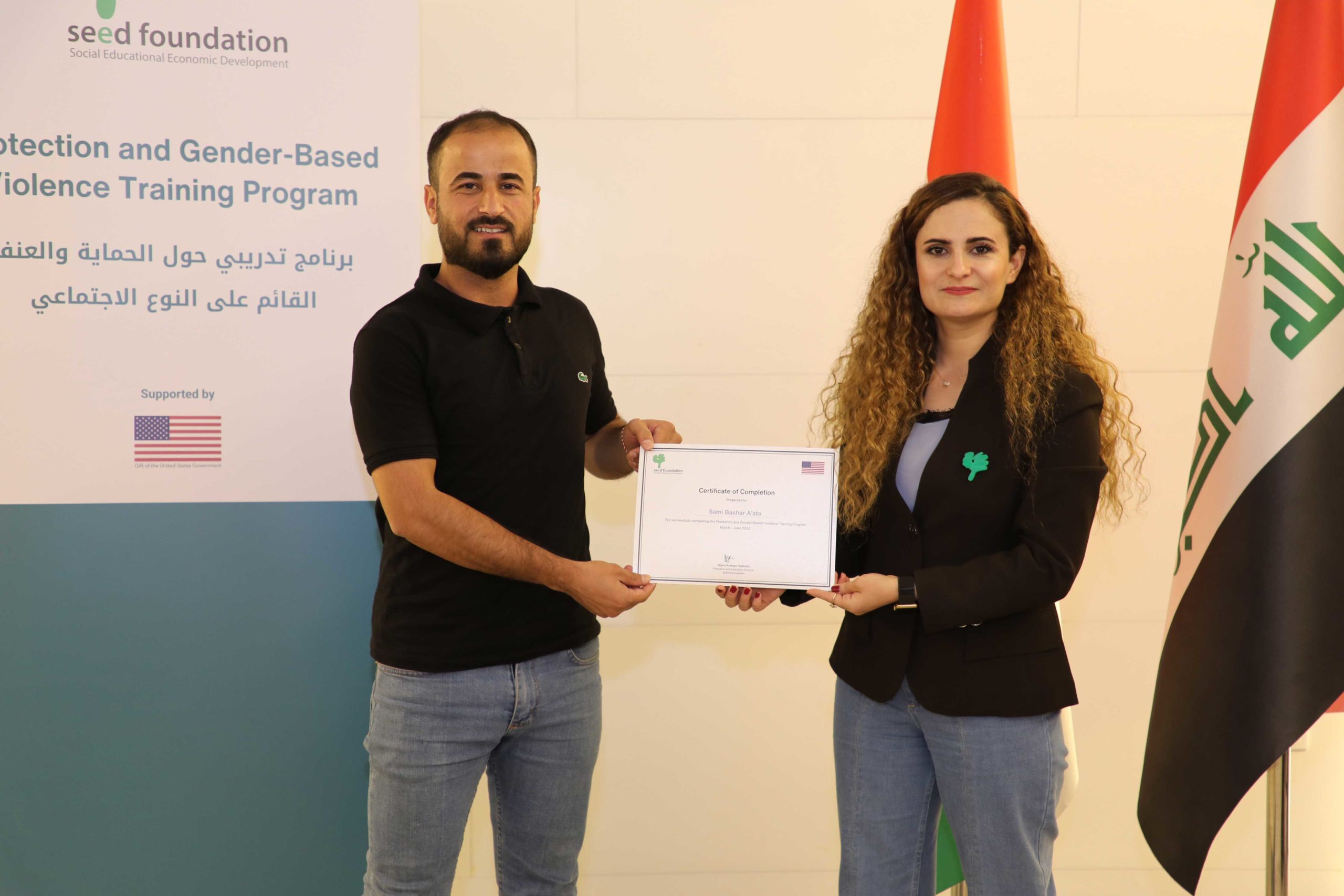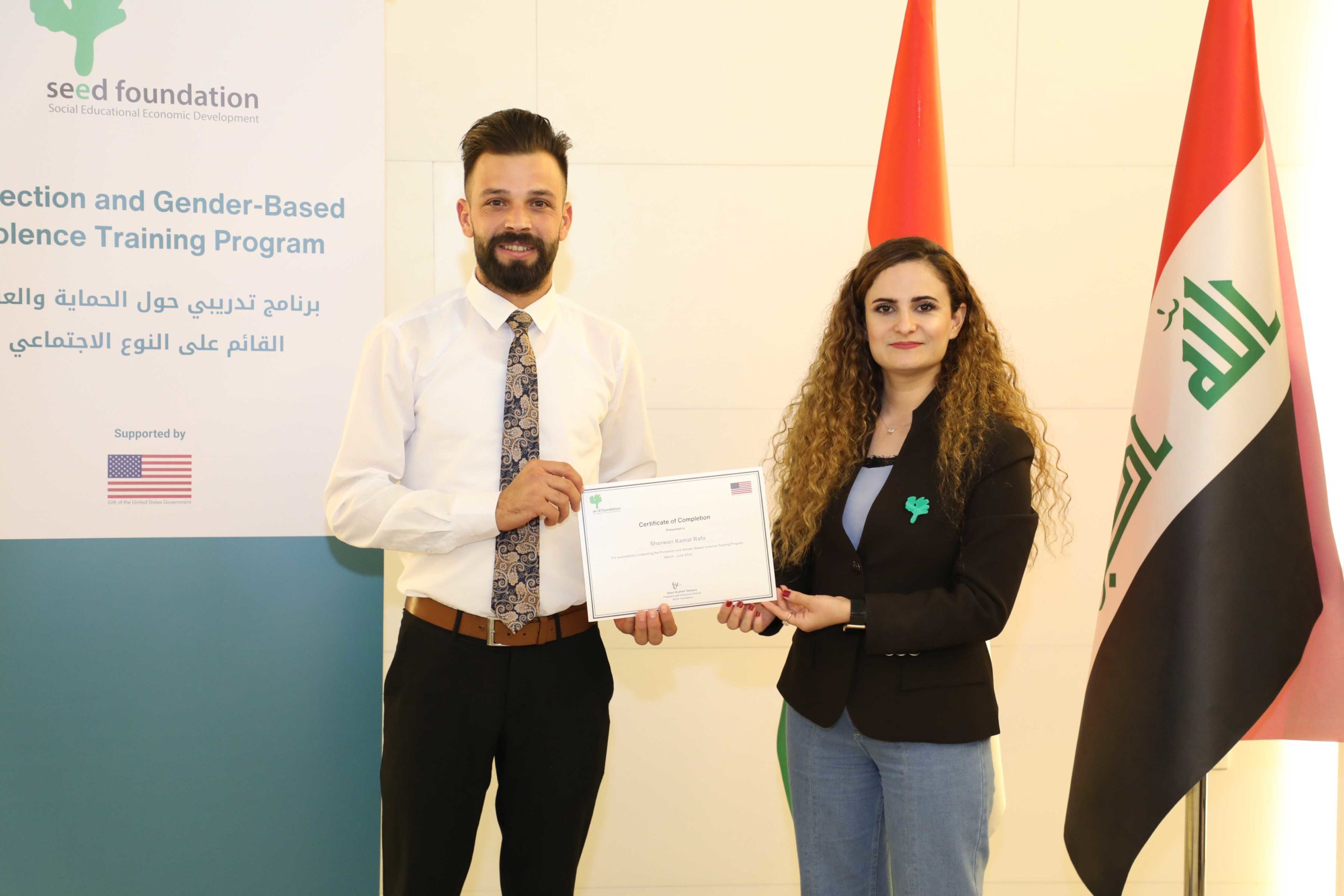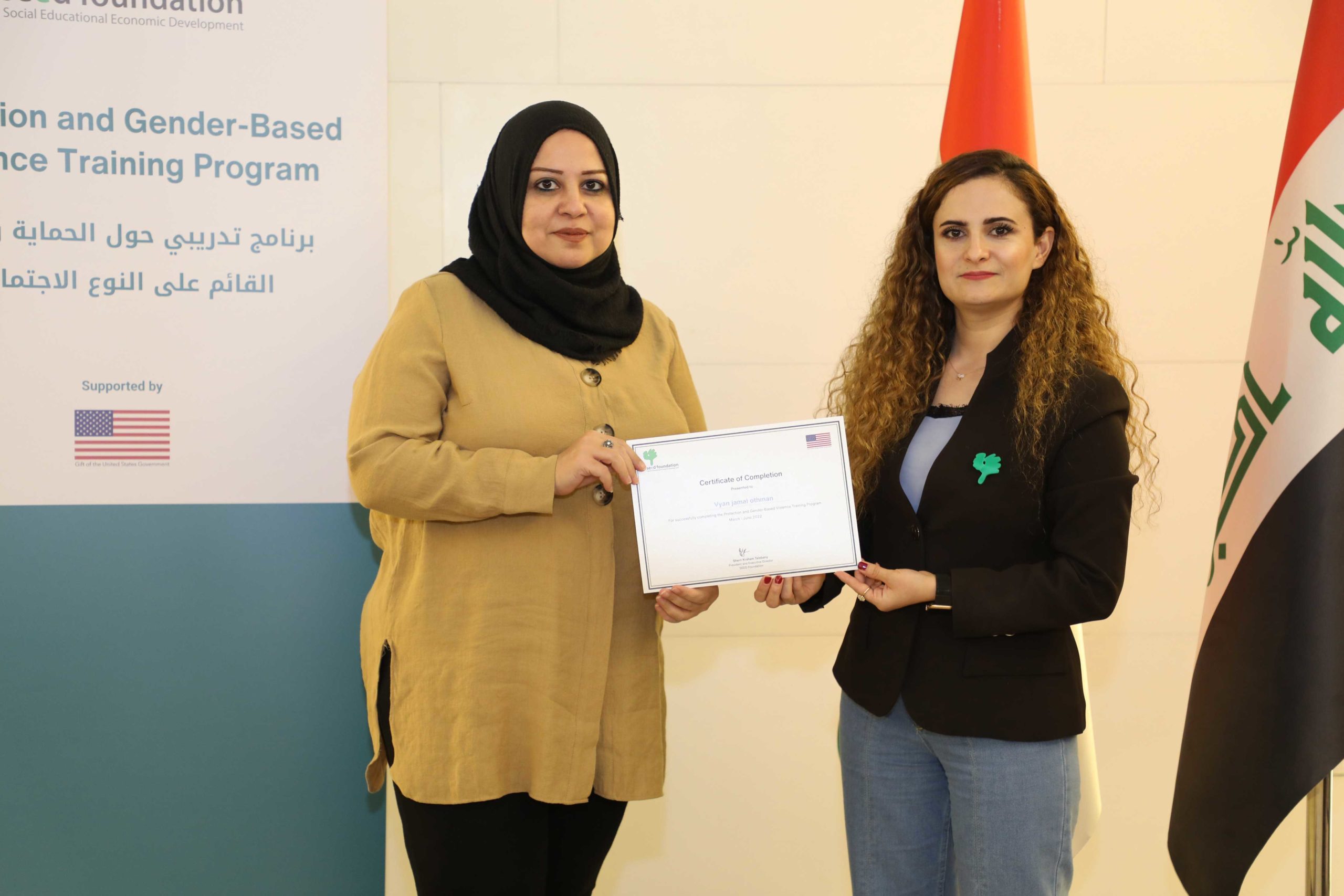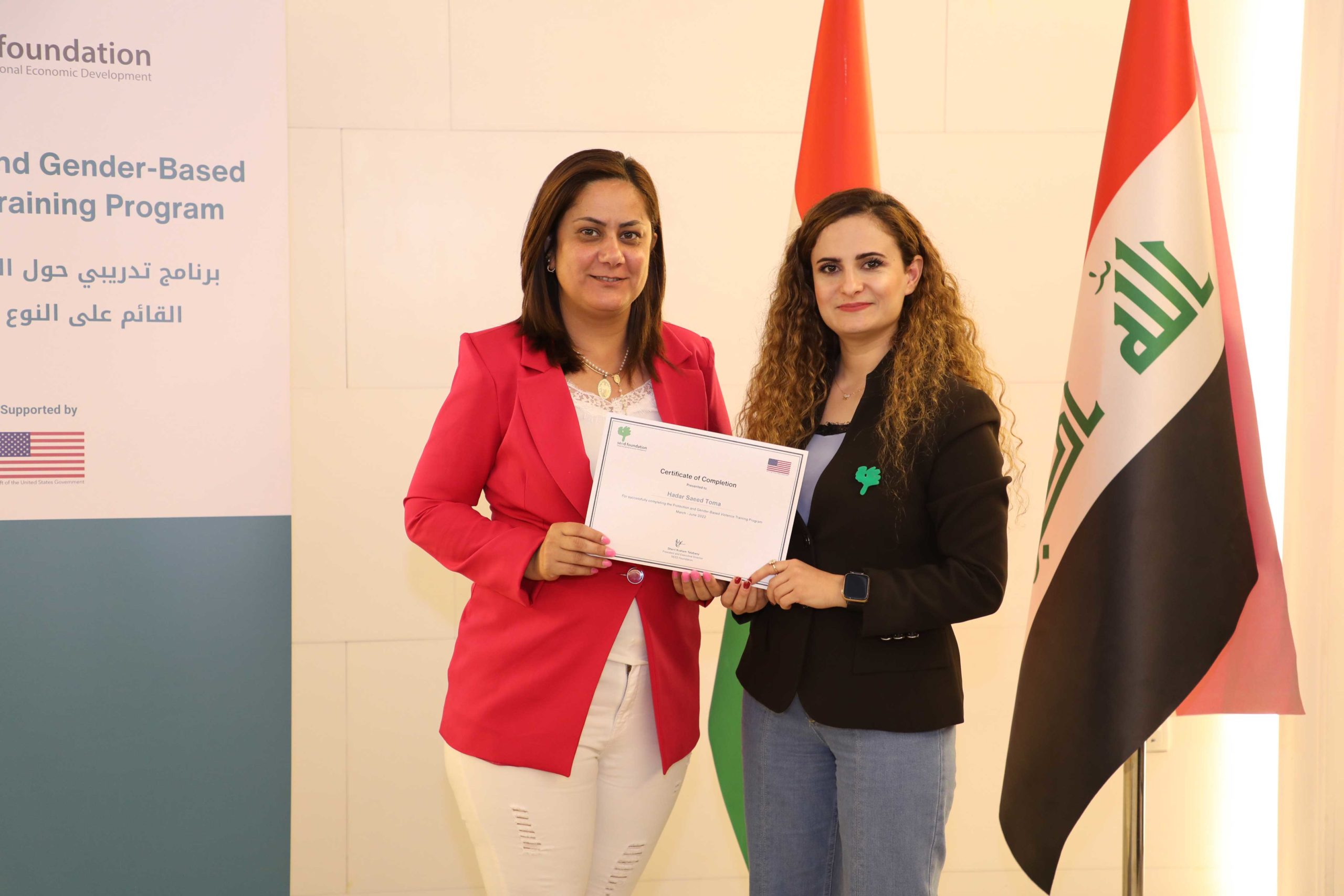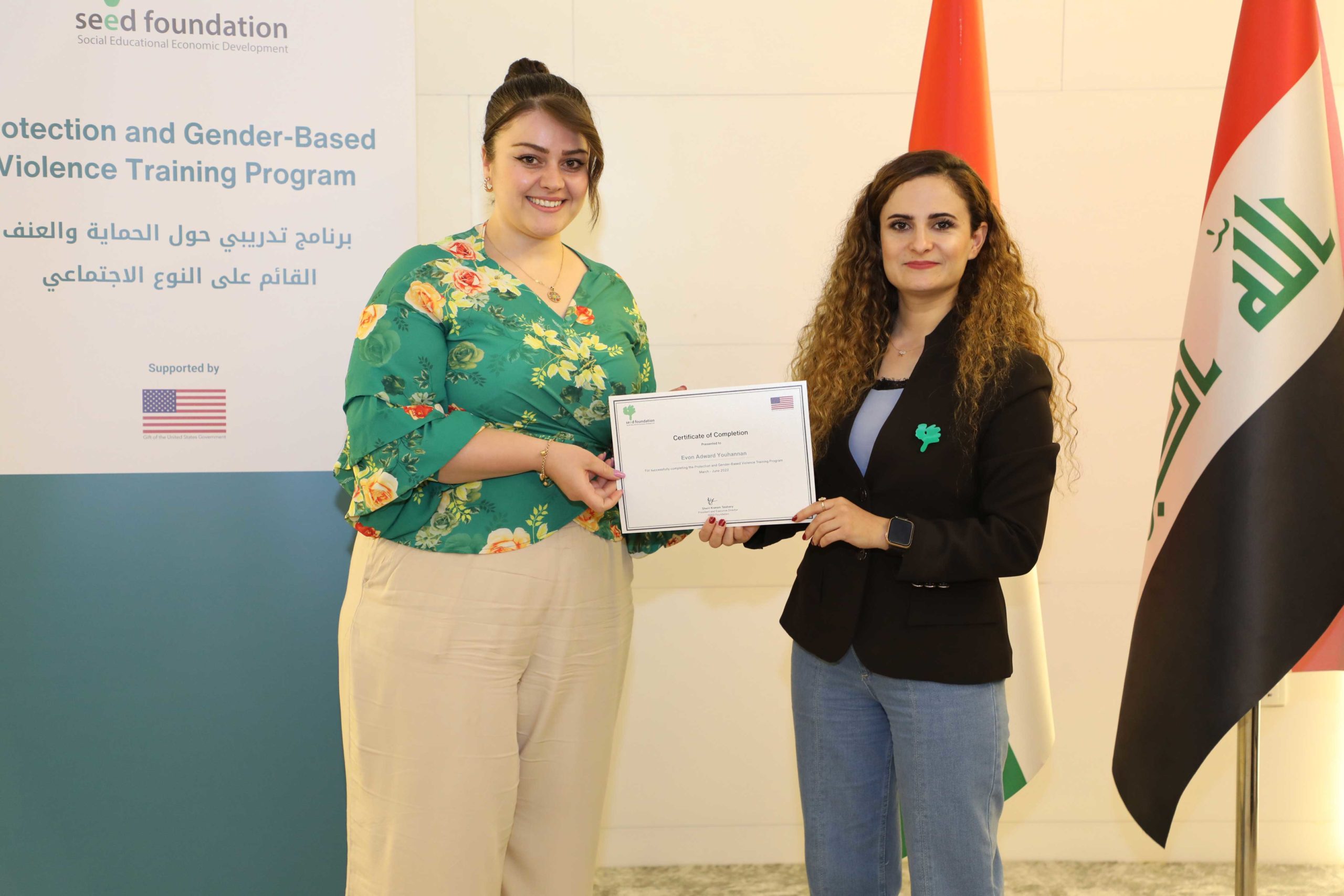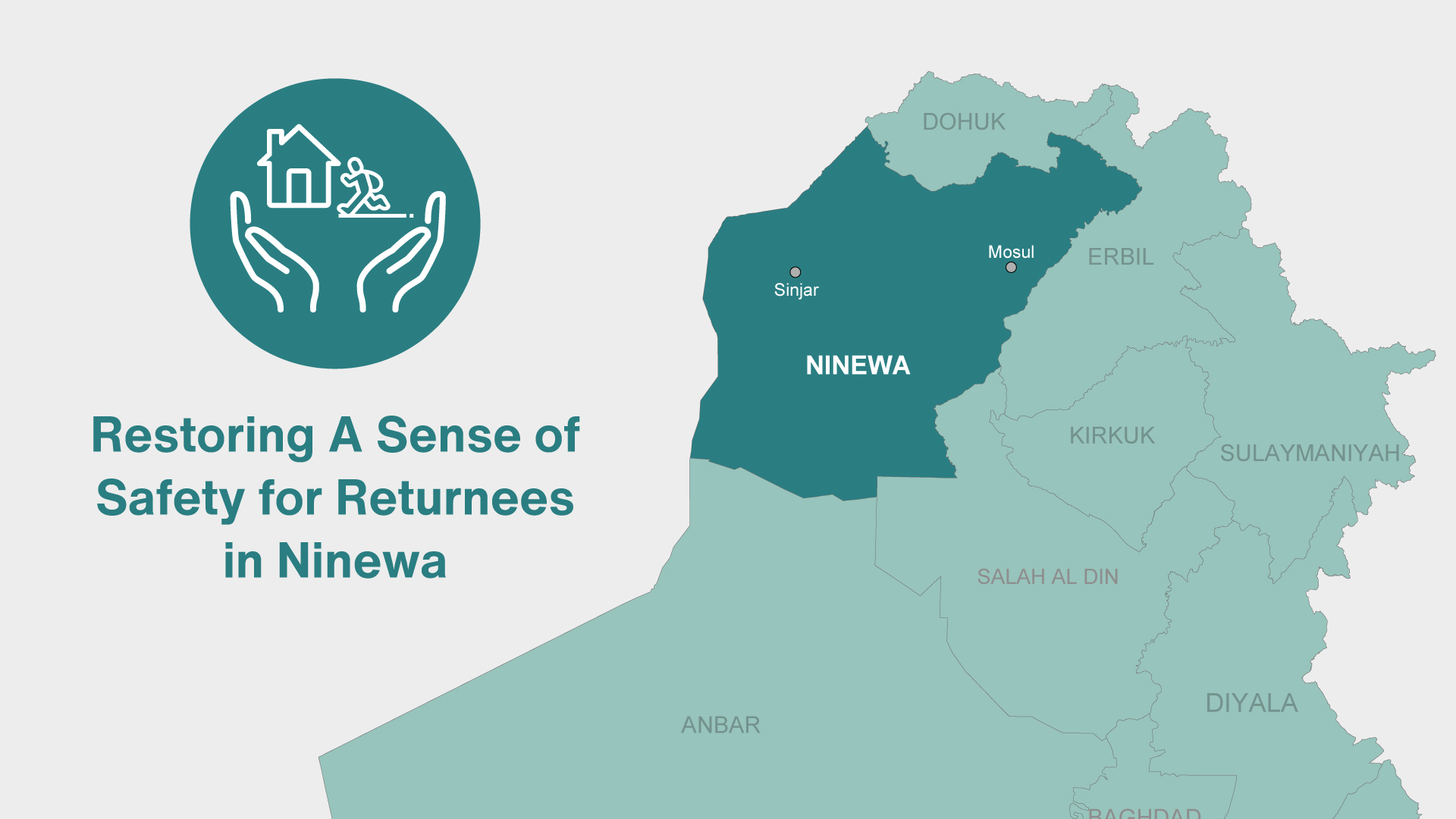
Restoring A Sense of Safety for Returnees in Ninewa
SEED Trains over 50 NGO staff on Protection and Gender-Based Violence
To date, almost 5 million Iraqis, formerly displaced by ISIS, have returned home. And while once many lived in communities that enjoyed relative safety, years of exposure to conflict and long-term displacement has resulted in new, frightening forms of violence. The biggest threat for many, is now inside the home.
Across Ninewa – an area in Iraq’s north that was hard hit by ISIS fighting, not only was infrastructure destroyed, but entire communities dislodged – including the governance and social structures that afforded people access to support services such as healthcare (both physical and mental), education, security and legal support. The humanitarian response, aimed at helping people to rebuild and return home, was slow but steady – with a majority of the displaced population having returned in the years following the end of the ISIS war. But then, at a critical moment of the recovery efforts, the country was enveloped by the pandemic – halting or slowing humanitarian efforts, and leaving people confined to their homes or at-risk of contracting the virus.
These factors gave rise to alarming levels of gender-based violence (GBV) and “honor”-killing across Iraq – including Ninewa, with almost 50% of women reporting having experienced intimate partner violence (the most common form of GBV) in 2021/22. In the same years, the Humanitarian Needs Overview (HNO) highlighted the increased reporting of GBV incidents, primarily domestic violence, but also including restrictions on freedom of movement, access to basic services, and other rights violations.
Service providers in Ninewa – both NGO and government – have struggled to meet the demand and needs of survivors and those at risk of continued violence. There is limited experience and expertise amongst first responders, and limited understanding of best-practice approaches to working with GBV survivors and those at risk, particularly to the rising cases of technology facilitated GBV (TFGBV) – such as doxxing, image-based abuse, and catfishing.
In order to improve the well-being of the most vulnerable returnees and to reduce their reliance on negative coping mechanisms – such as the perpetuation of cycles of violence in the home – protection services, such as case management, community-based mental health and psychosocial support (MHPSS), mental health, and legal services are urgently needed to address the complex interconnected needs.
That’s why, in 2022, SEED Foundation, with support from the US State Department Bureau of Population, Refugees, and Migration (PRM), embarked on a new training initiative, targeting national staff from a range of national NGOs that work in the areas of most need.
This month, 30 representatives from NGOs working across Ninewa – including Sinjar, Mosul, Samarra and Ba’ashiqa – will graduate from SEED’s Protection and GBV Training Program, while a further 20 will continue their training with graduation set for the end of summer. These individuals represent 29 NGOs working in the humanitarian sector in areas with the highest response gap for returnees.
The program, which includes three weeks of classroom instruction delivered over 4-5 months – in a sequence of one instruction week followed by 3-4 weeks of on-the-job coaching – aims to provide them with the foundational skills to deliver high-quality survivor-centered services.
“It has been a while since I had such good training and I really learned a lot of things,”
“Before the training, when we received a case, we would share information relating to their case, and about the survivor with colleagues, but now, we know the importance of confidentiality of clients,”
A survivor-centered approach to GBV seeks to empower the survivor by putting her or him in the center of the helping process.
Violence in the home not only has a devastating impact on women and children, but on broader society. Around the world, there is a proven link between women being physically or sexually abused in the home and the level of conflict and war in her country. The data shows that when domestic violence is high – a society tolerates and permits men to abuse their wives, and this behavior is normalized – the country is exponentially more likely to use violence to solve all forms of conflict and much more likely to go to war.

